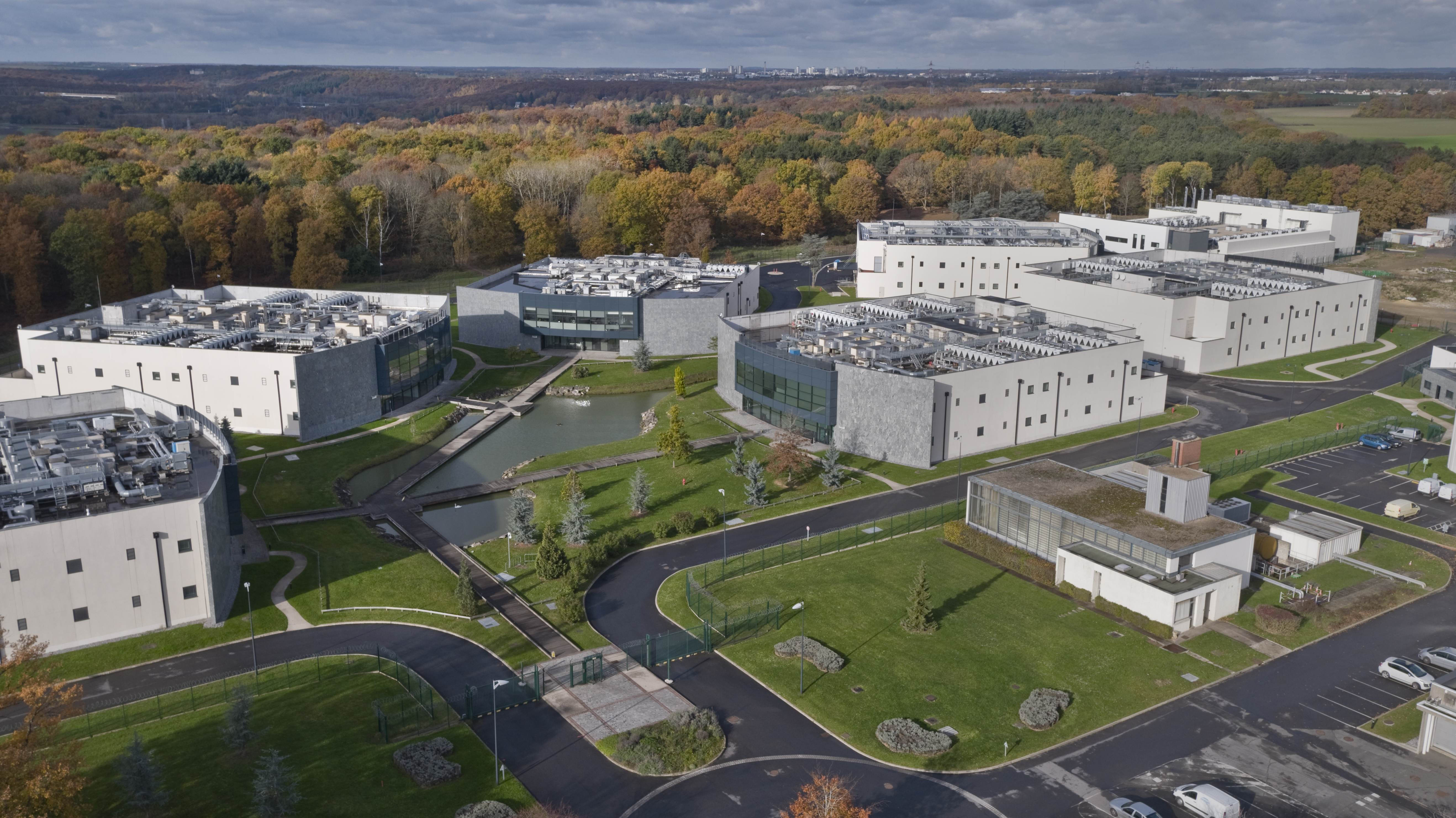
France has hundreds of data centers of different sizes, configurations and uses. Regarding the question of environmental impact, French data centers are turning out to be star pupils, as they have adopted eco-efficient approaches and are increasingly turning to renewable energy.
To optimise data center energy efficiency and thus reduce their environmental impact, France draws on a range of skills and expertise to design, build and operate such infrastructures. Thanks to Free Cooling technology, stakeholders in the French data center industry can now set up data centers that are just as energy efficient as those in Northern Europe. This technique, also called natural cooling, uses natural sources like air and water to cool data centers down, thereby guarding against the Joule effect – the dissipation of electricity in the form of heat – generated by IT equipment. This means that data centers can reduce their reliance on air-conditioning, which significantly cuts their energy consumption. This technology, developed by members of the French data center industry and now used by the great majority of new data centers, means that data centers can be set up throughout France.
France has also agreed to reduce data center energy consumption by complying with the European Commission’s code of conduct regarding the design and operation of data centers. This programme, introduced in 2008, enables data centers to increase energy efficiency by 30% and is currently followed by nearly 300 European data centers, and around sixty in France. In fact the very first data center to comply with the requirements of the European code of conduct is in France.
France, for data centers that are increasingly using renewable energy
Nowadays, coal-fired power stations are no longer the only option when it comes to operating a data processing center, or data center for short. A data center’s power supply depends on the energy mix offered by the country where it is located. In France, renewable energy is now much the preferred energy source compared with coal-fired power stations. In fact 20% of the electricity consumed by French data centers now comes from renewable sources, as against less than 2% from coal-fired power stations. Some data centers even offset all the energy they consume with green energy. To do this, they take out special contracts with their energy suppliers. These contracts guarantee that all the electricity used by the data centers corresponds with the same amount of renewably sourced energy injected into the grid by the electricity supplier.
Over the next few years, data centers will be set up in the various regions of France. They will operate in compliance with local energy master plans. The twin objective will be to optimise the use of renewable energy by controlling demand and make it easier to recover the heat emitted by data centers and use it in urban heating systems. Data will then be transferred to the data processing center using the most renewable energy at any given moment. To achieve this there will have to be contracts between data center operators, their clients and their suppliers.
DATA4 Group, operating data centers that respect the environment
DATA4 Group is present in France, Italy and Luxembourg, operating the largest and most powerful data center campus in Europe. In fact it has no less than 300 acres of land available to host your data. In terms of electricity resources, we can access 146 MW of electricity produced solely from renewable energies. Because we care about our environmental impact, we do all we can to ensure that our data centers achieve a PUE (power usage effectiveness) ratio close to 1.0.
To guarantee entire satisfaction, DATA4 Group funds, designs, builds and operates its own data centers, so that it can be sure of offering data hosting solutions that are not only agile, scalable, secure and high performing, but eco-friendly as well. We offer an extensive portfolio of services ranging from simple shared racks to entire dedicated buildings.

